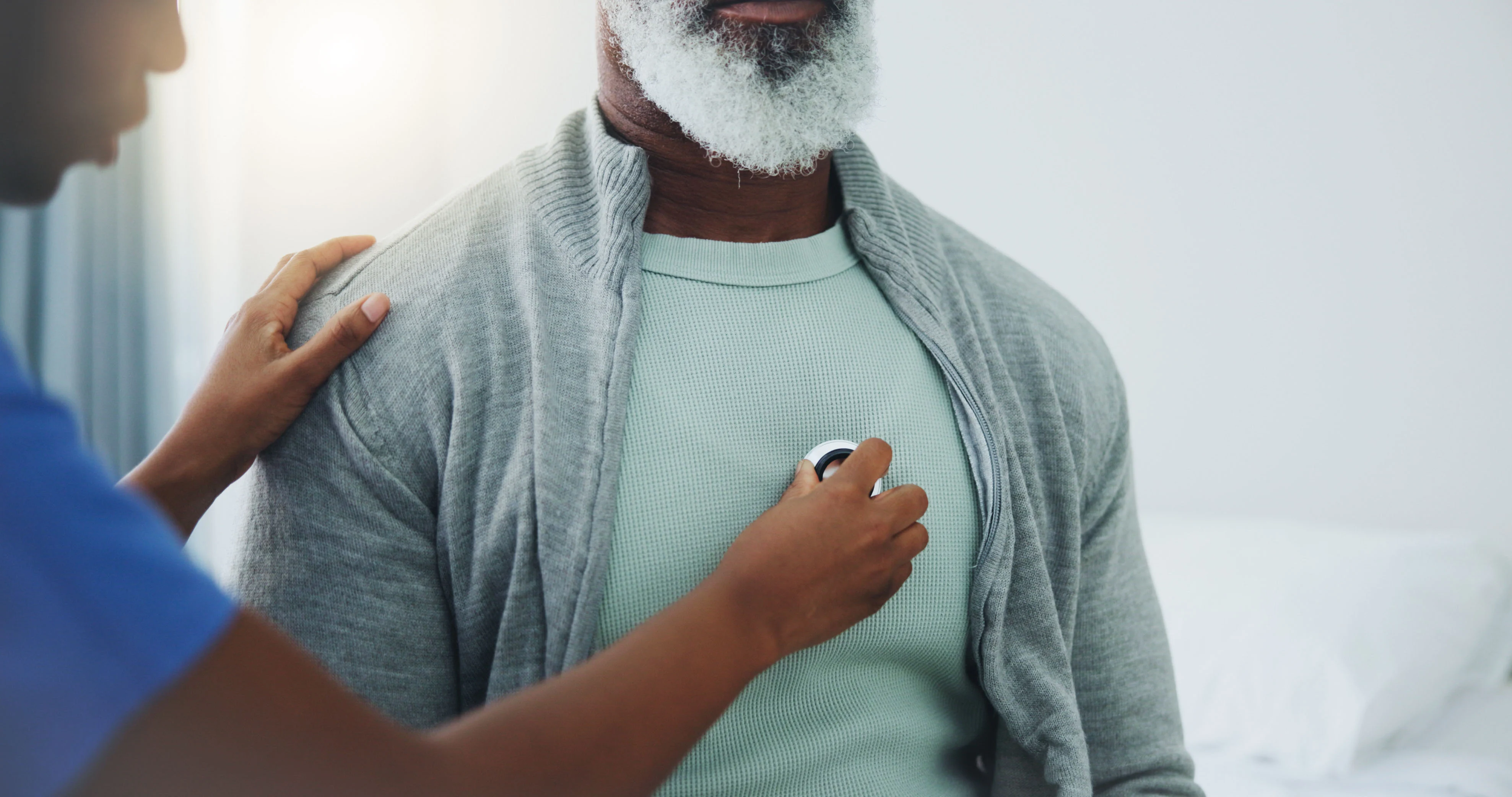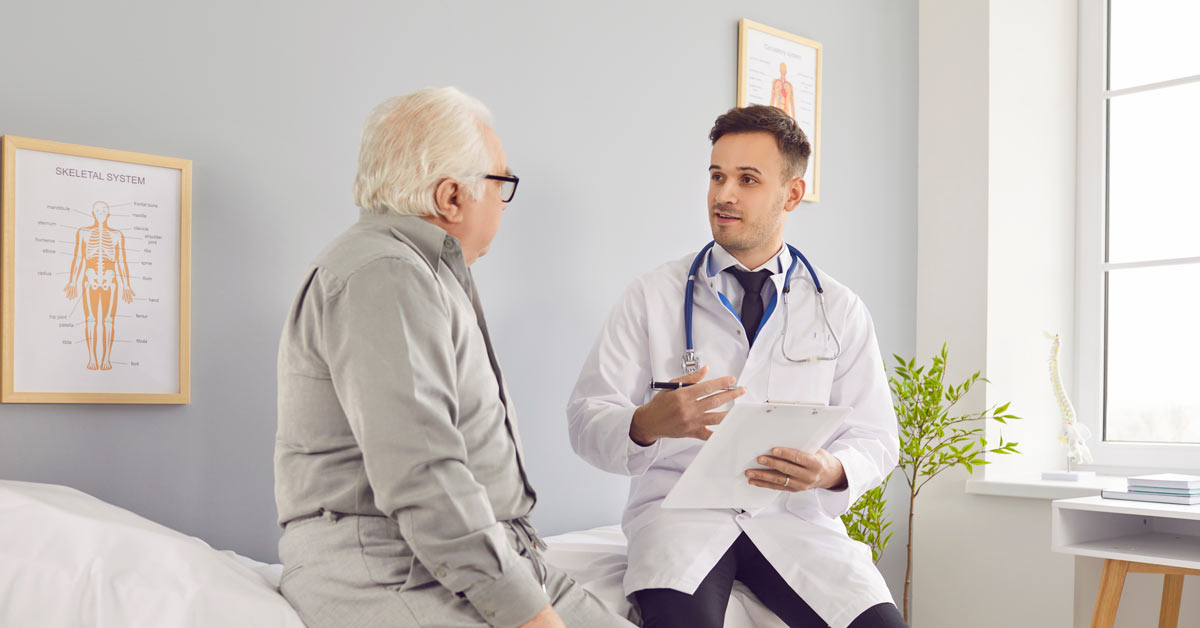These Four Simple Tips Can Help Alleviate Nasal Dryness Caused By Your CPAP Device
While acknowledging the advantages of CPAP (continuous positive airway pressure) therapy, some individuals frequently grapple with uncomfortable nasal dryness. The gas flow in CPAP therapy can challenge the nasal airway's ability to retain adequate humidity and warmth, leading to moisture loss in the airways and potential symptoms of inflammation and upper airway dryness for CPAP users.
"When beginning the use of CPAP therapy, patients often complain of nasal dryness during the first few months. The weather may also contribute to the side effects of using a CPAP," says Robert Miller, Apria's Vice President of Sleep Business.
The CPAP machine encourages continuous airflow directly through the nose and/or mouth. This is a forced airflow that patients may not have experienced before. This is ideal for patients with conditions such as sleep apnea, but can have a few side effects.
Patients who have started CPAP therapy may notice their nose is dry, crusty, and occasionally bloody.
How to Avoid Nasal Dryness
Here are four ways to prevent or stop nasal dryness caused by your CPAP therapy:
1. Check your mask
A hissing or whistling sound may indicate an ill-fitting mask, potentially causing nasal dryness. If you experience this issue, it's advisable to consult with a CPAP or sleep specialist for a mask refitting. The initial fitting might have produced inaccurate results, requiring adjustments. Properly-fitted CPAP masks ensure the intended airway pressure reaches your nasal passages, minimizing the risk of dryness.
2. Add humidification
Heated humidifiers serve as a beneficial solution to alleviate nasal discomfort. While many machines come equipped with built-in humidifiers, you also have the option to purchase them as additional components. It's essential to use distilled water to ensure optimal performance. Additionally, incorporating heated tubing can contribute to maintaining warm and moist air, enhancing overall comfort during CPAP therapy.
3. Try an ointment
Apply non-petroleum-based moisturizer, such as CPAP Moisture Therapy Cream, to the affected area as needed. Products containing petroleum jelly, paraffin/mineral oils, or alcohol should be avoided as they can harm the soft cushioning of a CPAP mask.
4. Check your settings
The accuracy of your CPAP prescription and settings is vital for effective treatment. Sometimes your machine settings require adjustment, contact us to speak with a sleep specialist to assess your machine settings.
Ending Nasal Dryness
While CPAP therapy offers valuable benefits for individuals with conditions like sleep apnea, it's not uncommon for users to encounter the discomfort of nasal dryness. Recognizing that this challenge is essential, and seeking solutions can significantly improve the overall CPAP experience. If the condition continues, contact your doctor.
References
1. “4 Tips to Alleviate Nasal Dryness from CPAP Usage.” CPAPnation, November 23, 2022. https://www.cpapnation.com/blogs/news/4-tips-to-alleviate-nasal-dryness-from-cpap-usage.
2. Hope, Kath. “Petroleum Jelly Products like Vaseline + Vicks Should Not Be Used with CPAP, NIV + Oxygen Masks.” hope2sleep.co.uk, February 16, 2017. https://www.hope2sleep.co.uk/blog/petroleum-jelly-products-like-vaseline-vicks-should-not-be-used-with-cpap-niv-oxygen-masks.html.
3. Repasky, David. “Nasal Dryness with CPAP: Tips, Tricks, and Products.” CPAP.com, September 14, 2023. https://www.cpap.com/blog/nasal-dryness-cpap/.
4. “Why Is Heated Humidification Important in CPAP Therapy?” Fisher & Paykel Healthcare, November 1, 2023. https://www.fphcare.com/
LEGAL DISCLAIMER: Material in this newsletter is provided for general health education and informational purposes and to provide references to other resources only; it may not apply to you as an individual. While Apria Healthcare believes that the information provided through this communication is accurate and reliable, Apria Healthcare cannot and does not make any such guarantee. It is not intended to be a replacement for professional medical advice, evaluation, diagnosis, services or treatment (collectively, “medical treatment”). Please see your healthcare provider for medical treatment related to you and your specific health condition(s). Never disregard medical advice or delay seeking medical care because of something you have read on or accessed through this website. Reading this newsletter should not be construed to mean that you have a healthcare provider/patient relationship.

.jpg?width=1120&height=376&name=AD-EmailBanner-CPAP-SkinIrritation-1120x376%20(1).jpg)




